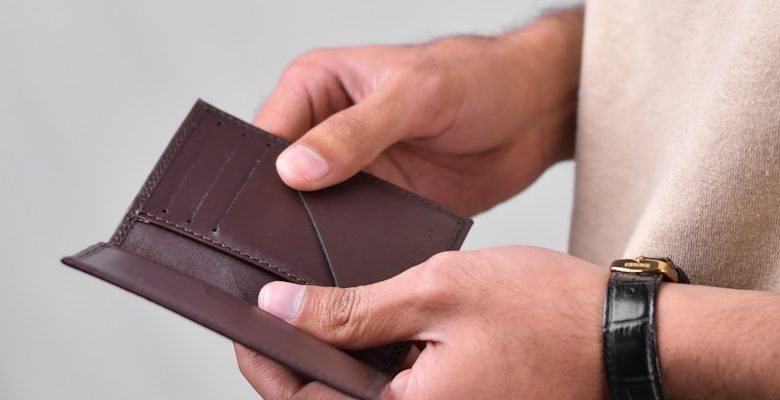Understanding Custodial vs. Non-Custodial Wallets

- What are Custodial Wallets?
- Benefits of Using Custodial Wallets
- Understanding Non-Custodial Wallets
- Key Differences Between Custodial and Non-Custodial Wallets
- Security Risks Associated with Custodial Wallets
- How to Choose the Right Wallet for Your Needs
What are Custodial Wallets?
Custodial wallets are a type of digital wallet where a third party is responsible for holding and securing the user’s private keys. This means that users do not have full control over their cryptocurrency funds since the custodian has access to the keys needed to access the wallet. While custodial wallets may offer convenience and user-friendly features, they also introduce a level of risk as users are relying on the custodian to protect their assets.
When using a custodial wallet, users are essentially trusting the custodian to keep their funds safe from hacks, theft, or any other security breaches. This centralized control can be seen as a trade-off for the ease of use and access to additional services that custodial wallets may provide. It is essential for users to carefully consider the reputation and security measures of the custodian before entrusting them with their funds.
Overall, custodial wallets can be a suitable option for those who prioritize convenience and are willing to accept the associated risks. However, for users who value security and autonomy over their funds, non-custodial wallets may be a more appropriate choice. Non-custodial wallets give users full control over their private keys, meaning they are solely responsible for the security of their funds. By holding their private keys, users have the peace of mind knowing that they have complete ownership and control over their cryptocurrency assets.
Benefits of Using Custodial Wallets
Custodial wallets offer a range of benefits that make them a popular choice for many users in the cryptocurrency space. One of the main advantages is the added layer of security that comes with entrusting your funds to a third party. By using a custodial wallet, you can benefit from the security measures put in place by the service provider, such as encryption, multi-factor authentication, and regular security audits.
Another benefit of using custodial wallets is the convenience they offer. With a custodial wallet, you don’t have to worry about managing your private keys or keeping track of your funds. Instead, you can rely on the service provider to handle all of these tasks for you, making it easier to access and use your cryptocurrencies.
Additionally, custodial wallets often come with additional features that can enhance your overall experience. Some custodial wallets offer built-in exchange services, allowing you to easily trade between different cryptocurrencies without having to use a separate platform. Others may offer integrated payment solutions, making it simpler to send and receive funds.
Understanding Non-Custodial Wallets
Non-custodial wallets are a type of cryptocurrency wallet that allows users to have full control over their funds. Unlike custodial wallets, which are managed by a third party such as an exchange or wallet provider, non-custodial wallets give users the ability to manage their own private keys and store their funds securely. This means that users are responsible for the security of their own funds and must take precautions to protect their private keys from loss or theft.
One of the main advantages of non-custodial wallets is that they offer a higher level of security and privacy compared to custodial wallets. Because users control their own private keys, they are not at risk of having their funds frozen or seized by a third party. Additionally, non-custodial wallets are typically decentralized, meaning that they do not rely on a single point of failure.
Another benefit of non-custodial wallets is that they are often open-source, meaning that their code is publicly available for review and audit. This transparency helps to build trust among users and ensures that the wallet is secure and free from vulnerabilities. Additionally, non-custodial wallets are compatible with a wide range of cryptocurrencies, allowing users to store and manage multiple assets in a single wallet.
Overall, non-custodial wallets offer users greater control over their funds and a higher level of security and privacy compared to custodial wallets. By choosing a non-custodial wallet, users can ensure that their funds are kept safe and secure while maintaining full control over their assets.
Key Differences Between Custodial and Non-Custodial Wallets
There are several key differences between custodial and non-custodial wallets that users should be aware of. The main distinction lies in who has control over the private keys associated with the wallet.
- Custodial wallets are wallets where a third party, such as an exchange or wallet service, holds the private keys on behalf of the user. This means that the user is relying on the security measures implemented by the custodian to protect their assets.
- On the other hand, non-custodial wallets are wallets where the user has full control over their private keys. This gives users complete autonomy and responsibility for the security of their funds.
- Another key difference is the level of security provided by each type of wallet. Custodial wallets may offer additional security measures, such as insurance or advanced authentication methods, to protect user funds. However, this also means that users are trusting the custodian to keep their assets safe.
- Non-custodial wallets, on the other hand, rely on the user to implement their own security practices, such as using secure passwords and storing private keys securely. While this gives users more control, it also means that there is a higher risk of loss if the private keys are compromised.
- Ultimately, the choice between a custodial and non-custodial wallet depends on the user’s preferences for security, control, and convenience. Both types of wallets have their own advantages and disadvantages, so it is essential for users to understand the differences before deciding which option is right for them.
Security Risks Associated with Custodial Wallets
When it comes to custodial wallets, there are several security risks that users should be aware of. While these wallets offer convenience and ease of use, they also come with their own set of vulnerabilities. Below are some of the security risks associated with custodial wallets:
- Third-party Risk: One of the main security risks of custodial wallets is the reliance on a third party to store and manage your funds. This means that you are trusting the security practices of the wallet provider, which could potentially put your funds at risk if they are not properly secured.
- Centralized Target: Custodial wallets are a centralized target for hackers, as they store a large amount of funds in one place. This makes them an attractive target for cybercriminals looking to exploit vulnerabilities in the system.
- Loss of Control: When using a custodial wallet, you are essentially giving up control of your private keys to a third party. This means that you are relying on the wallet provider to keep your funds safe, which can be risky if they are not trustworthy or secure.
- Regulatory Compliance: Custodial wallets are subject to regulatory compliance requirements, which can vary depending on the jurisdiction. This means that your funds may be at risk if the wallet provider fails to comply with the necessary regulations.
Overall, while custodial wallets offer convenience and ease of use, they also come with inherent security risks that users should consider before entrusting their funds to a third party. It is essential to weigh the benefits and drawbacks of custodial wallets carefully and take appropriate precautions to protect your assets.
How to Choose the Right Wallet for Your Needs
When choosing the right wallet for your needs, there are several factors to consider. First, think about what type of cryptocurrencies you plan to store. Some wallets are designed to hold a wide range of digital assets, while others may only support specific coins. It’s important to choose a wallet that is compatible with the cryptocurrencies you own.
Next, consider how you plan to use your wallet. If you frequently make transactions, you may want to choose a wallet with a user-friendly interface and fast processing times. On the other hand, if you plan to hold onto your cryptocurrencies for the long term, security features may be a top priority. Look for wallets that offer multi-factor authentication, encryption, and other security measures to keep your funds safe.
Additionally, think about whether you prefer a custodial or non-custodial wallet. Custodial wallets are managed by a third party, which can provide convenience but may also pose security risks. Non-custodial wallets, on the other hand, give you full control over your funds but require more responsibility on your part. Consider your comfort level with managing your own private keys and choose a wallet that aligns with your preferences.
Finally, consider additional features that may be important to you. Some wallets offer built-in exchange services, while others support staking or lending. Think about how you plan to use your cryptocurrencies in the future and choose a wallet that offers the functionality you need.
By taking these factors into account, you can choose a wallet that meets your needs and helps you make the most of your digital assets. Remember to do your research and compare different wallet options to find the best fit for you.



